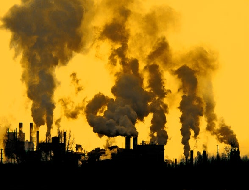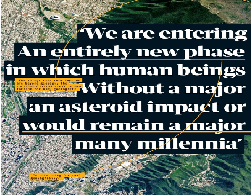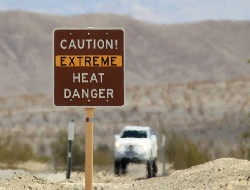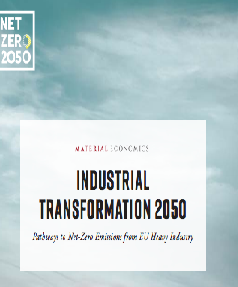June 2019 Sustainable development
Read the articles selected in June 2019
The business case for change
Source: ILO
Gender diversity is a smart business strategy, a driver of enhanced business performance . Glass walls like the culture of “anytime, anywhere”, penalize women carrying familiar responsibilities and segregated in support functions, while strategic roles tend to be dominated by men.
Read more:
Global Report on Internal Displacement
Source: asvis.it
Political instability, chronic poverty and climate change are the driver of cyclical and protracted displacement, which prefers urban areas and is not easily to estimate in its real dimensions and directions. Nacional policies should strengthen the local action for a long-term risk reduction and inclusive development.
Read more:
http://www.internal-displacement.org/sites/default/files/2019-IDMC-GRID-Summary.pdf
No time to wait
Source: WHO
Antimicrobial resistance is an issue for all countries at all levels of development. National action plans are slow and are to be tailored to the local needs, context and capacities. Not always the political awareness and the public communication link this issue with the fundamental national interests.
Read more:
Here’s one more political assault on public health
By Gretchen Goldman & Ploy Achakulwisut
Source: Scientific American, 17 June

The latest research shows the harmful effects of the particulate matter, even at levels below the standards under the US Clean Air Act. Meanwhile, interested corporate and fossil fuel industries campaign in the US for dismantling the legal protection from air pollution.
Read more:
https://blogs.scientificamerican.com/observations/heres-one-more-political-assault-on-public-health/
Artic attack. A journey through melting sea ice
By Jonathan Watts
Source: The Guardian Weekly, 14 June
The Arctic ice is melting faster than predicted. One scientific expedition intends to understand this clear and accelerating trend, partially explained by a series of feedbacks created by the expanding ocean exposed to 24 hours sunlight.
Progress toward the Sustainable Development Goals
Report of the UN Secretary-General
Source: un.org
Even if the SDGs have been integrated in the national and governative plans and strategies, and in spite of the global widepread of the 2030 Agenda, their too slow achievement and reversibility in some areas put us facing a decade which is crucial for all life on the Planet in the present and in the future.
Read more:
Monitoring the SDGs at EU level with composite indicators
Source: asvis.it
This report releases a set of indicators, provided by Eurostat’s dabase that represent the performances of each EU Member State related to each SDG, providing an analysis based on one critical selection of high-quality indicators broken down both at territorial and social level.
Read more:
http://asvis.it/public/asvis/files/ASVIS-REPORT-EU-COMPOSITES-FINAL.pdf
Is this really the Anthropocene?
Source: The Guardian Weekly, 7 June

Anthropocene means that there is no sphere in the echosystem and the life on the Planet which hasn’t been modified by the human hand. As to the Earth’s rock, the new technological materials will survive in its sediment for millions of years, imprinting an era without precedents.
L’ epidemía de infecciones sexuales suma un millón de contagios al día
By Pablo Linde
Source: El País, 7 June
The WHO has published a study on the rising and unaware widespread of sexually transmitted diseases, sometimes incurable and anyway always carrying heavy consequences on the general health conditions. Information is essential to the prevention of the infection and the stigma, which nurtures the epidemy.
Sperm v plastics
Source: Guardian Weekly, 7 June
After new research, the residuals of chemicals banned since years and survived in the environment have an important role in the decline of the male reproductivity. Even though the lifestyle plays a part in it, the effect of the so-called endocrine disruptors seems inexorable.
From funding to financing
Source: World Economic Forum
Achieving the SDGs requires both economic committment and strategy, as well as to integrate public resources with other sources of flows. The purpose of this report is to incentivize the shift from a project funding model to a model of blended finance in the most efficient way.
Read more:
http://www3.weforum.org/docs/WEF_From_Funding_to_Financing.pdf
Living beyond nature’s limits.
Source: WWF
This report measures the European ecological footprint , which is the amount of natural resources an average European uses, compared to the rest of world, highlighting the cost of our irresponsible consumption patterns in terms of money and health.
Read more:
Measuring distance to the SDG Targets 2019
Source: oecd.org
The core mission of the 2030 Agenda to improve people’s lives in a long-term perspective is promoted by the OECD in its work on defining and measuring well-being and sustainability. With a unique methodology this report assesses how far countries are from the 2030 targets.
Read more:
Urgent climate action could prevent many heat-related deaths
By Peter C. Frumhoff & Kristie L. Ebi
Source: Scientific American, 4 June

A strategy of interventions to face the unavoidable heat waves, combined with emissions reductions, can prevent nearly all heat-related deaths in the US cities. The investments should focus on protecting the most vulnerable groups of the population and expanding green spaces.
Read more:
Celebration of World Food Safety Day
Source: World Health Organization
On 7 June has been celebrated the World Food Safety Day, an anniversary under the patronage of the UN and the FAO. This year’s topic “Food Safety, everyone’s business”,highlights the responsibility shared between governments, producers and consumers to reduce the food borne diseases.
Read more:
Industrial transformation 2050
Source: Material Economics

How is it possible to keep EU heavy industry competitive while reducing fossil fuels? A plan of industrial strategies to get close to zero-net emissions by 2050, a policy agenda for innovation and a circular economy are the basis for a prosperous industrial future.
Read more:
Towards a sustainable Europe by 2030
Source: European Commission
The principles of sustainable development are deeply rooted in the EU treaty, and the EU has had a leading role in the conclusion of the Paris Agreement. However nothing can be held as permanently settled, and if democracy and the rule of law are the European pillars, the SDGs help us keep them standing.
Read more:
https://ec.europa.eu/commission/sites/beta-political/files/rp_sustainable_europe_30-01_en_web.pdf
Family Farming
Source: FAO
Family farmers have a pivotal role in contributing to achieving the SDGs. They produce the majority of world’s food, they are major investors and are protagonist in the development of rural, poor areas. While safeguarding traditions, thy know innovative solutions for food security.
Read more:
http://www.fao.org/3/ca4532en/ca4532en.pdf
We can’t solve climate change without nuclear power
By Daniel B. Poneman
Source: Scientific American, 24 May
Even if all Nations met all committments of the Paris Agreement in reducing emissions, the goal of limiting temperature rise to 2 C° over preindustrial levels wouldn’t be achieved. For this purpose the International Energy Agency has stated the need to double nuclear energy consumption by Midcentury.
Read more:
End fossil fuel subsidies, and stop using taxpayers’ money to destroy the world: Guterres
Source: un.org, 24 May
Spending taxpayers’money to subsidize fossil fuels means to finance pollution and destroying the world and peoples’s lives. UN Secretary-General António Guterres told the World Summit of R20 Coalition that taxes are necessary for advancing climate mitigation and adaptation in the developing world.
Read more:
https://news.un.org/en/story/2019/05/1039241
Go to the content

